Distinguished Teaching Award Winners
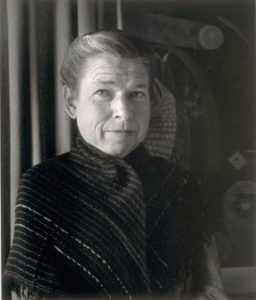 |
Josephine Miles, Distinguished Teaching Award, 1978Josephine Miles, the first woman to receive tenure in English, was also the department’s first woman recipient of the Distinguished Teaching Award. Miles was the product of the University of California, graduating from UCLA with an English degree in 1932; in 1938, she came to Berkeley as a graduate student, where she earned her Master’s degree and later her Doctorate, focusing on poetry. She joined the faculty of English Department in 1940, and taught writing, poetry, and critical theory, and creative writing for 38 years. In 1978, the same year she received the Distinguished Teaching Award, Miles retired from her professorship, having published over ten poetry collections and ten more academic books about the study of poetry. Miles was widely regarded as one of the most effective, painstaking, and beloved teachers in the department. In the 1950s, she founded the “Prose Improvement Project”, bringing together teaching assistants from 15 departments with the aim of bettering undergraduate writing skills. Much of her curriculum from the “Prose Improvement Project” was later adopted by the California Writing Project (Miles, Josephine Poetry, teaching, and scholarship: oral history transcript / and related material, 1977-1980; Online Archive of California). Her reputation as a teacher and mentor of younger poets was also legendary: her students went on to publish 50 poetry volumes, and two of them won the National Book Award. |
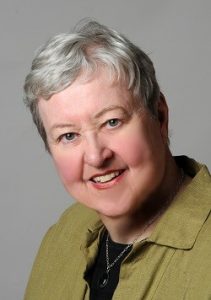 |
Anne Middleton, Distinguished Teaching Award, 1980Anne Middleton joined the Berkeley English Department in 1966 after receiving her Doctorate in English from Harvard. Middleton was a Medievalist who introduced generations of Berkeley English majors to the glories of Middle-English literature, helping them to read authors like Chaucer and other founding authors of English literature. She was known for her attentiveness undergraduate writing; she often returned first drafts to students with “every page covered in hand written notes” (https://senate.universityofcalifornia.edu/in-memoriam/files/anne-middleton.html). In 1980 Middleton’s extraordinary efforts were rewarded when she won the Distinguished Teaching Award. In addition to that recognition of her undergraduate teaching, she was celebrated for prioritizing community and helping fledgling teachers by mentoring graduate students. In fact, Middleton’s teaching was recognized internationally, and many of her graduate students went on to be prominent figures in the Medievalist field of study. See more on Middleton’s scholarship here and her administrative service here. |
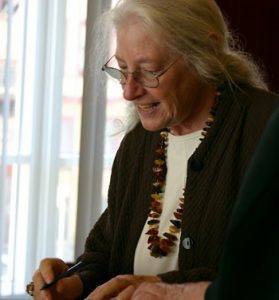
Photo Credit: Brian Adelman |
Janet Adelman, Distinguished Teaching Award, 1986Janet Adelman came to UC Berkeley in 1969 and taught for 39 years until retiring in 2007. She was a Shakespeare scholar who published many critical works on the bard’s plays, and the centrality of Shakespeare to the English department’s curriculum allowed a high percentage of majors to benefit from Adelman’s teaching. She was a devoted and passionate teacher, equally effective in small seminars and large lecture halls. Her lectures on Shakespeare were at once penetrating analyses and humanizing first-person encounters with works that students had often previously thought intimidatingly unapproachable. Adelman taught at all levels and was known for her “legendary” office hours, where students knew they would be welcome no matter how basic or disorganized their questions were. A student guide called “Ten things you must do before graduating from Berkeley” listed taking a course with her as its only academic imperative. She also worked intensively and carefully with both the graduate students whose dissertations she directed and the instructors who taught sections in her lecture courses. Her dedication to teaching the future teachers was rewarded with the Outstanding Mentorship of Graduate Student Instructors Award. See more on Adelman’s scholarship here and on her administrative leadership here. |
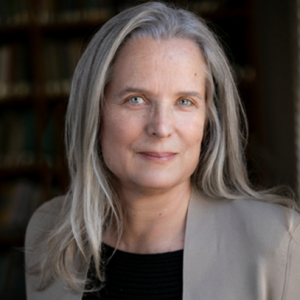
Photo Credit: Yanina Gotsulsky |
Susan Schweik, Distinguished Teaching Award, 1989Susan Schweik joined the Berkeley English Department in 1984, and just five years later she won the Distinguished Teaching Award. At the time, Schweik primarily taught 19th-and 20th-century American poetry, and she was praised for fostering an informal classroom atmosphere in both lecture courses and seminars, which encouraged student participation in discussions. Throughout her career Schweik has been an educational innovator. She designed and led the Disability Studies Program at Berkeley, for which she invented and co-taught a number of highly attended courses that have given students an opportunity to study with leading disabilities scholars and activists from around the world. And she helped design the Inclusion Initiative in which students work as personal care attendants while also taking a seminar in disability studies. For Schweik’s scholarship see here; for her administrative leadership see here. |
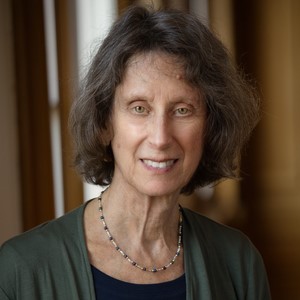
Photo Credit: Yanina Gotsulsky |
Elizabeth Abel, Distinguished Teaching Award, 1997Elizabeth Abel joined the English Department in 1982 after receiving her PhD in Comparative Literature from Princeton. Abel’s teaching, like her research, focuses on sexuality, gender, race, and psychoanalysis through the lens of 20th century fiction and visual imagery. Abel’s strengths as a teacher include turning the classroom into an open and exploratory intellectual space. Even in large lecture courses, her students report that she shows a concern for the students as individual learners. “Her interest in us makes such a difference” one wrote in a course evaluation: “She has brought off the near alchemical task of teaching us to examine the texts in relevant ways through a lecture style that invites class participation.” Another went so far as to say that Abel’s seminar on Virginia Woolf was “the most rewarding experience of my life.” In describing her connection to her students, Abel notes, “More than any other aspect of teaching, I treasure one-on-one advising.” “My philosophy of teaching,” she explains, “is grounded in my desire to help students develop and trust their own voices in the midst of the tumultuous debates unfolding in the humanities today.” |
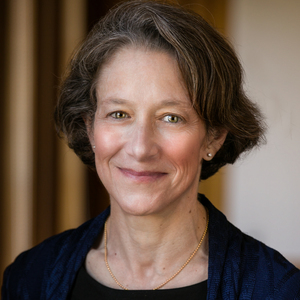
Photo Credit: Yanina Gotsulsky
|
Kevis Goodman, Distinguished Teaching Award, 2005Kevis Goodman came to Berkeley’s English Department in 1997 and has taught 17th-, 18th-, and 19th-Century British literature to hundreds of admiring students. She became famous for memorizing the names of all of the 100+ students in her undergraduate lecture course, so that she could call on them during the question-and-answer sessions. She was the only faculty member at Berkeley to win the Distinguished Teaching award in 2005. Her research and writing focus on British Romantic authors; her first book, Georgic Modernity and British Romanticism: Poetry and the Mediation of History, explores the literature of the late 18th and early 19th centuries. For many decades, though, she has been one of the English majors’ favorite guides through earlier writers as well, like Chaucer, Spenser, and Milton. Under Goodman’s tutelage, seemingly antiquated and therefore “dreaded” works, like Milton’s Paradise Lost, become not only relevant and interesting to 21st-century students but also beloved by them. Goodman is also an active mentor to graduate student instructors, and she won the campus-wide GSI Mentoring Award in 2004. Through the combination of her teaching style and special interests such as Milton, Goodman is able to guide students “out of the ‘haze of their preconceptions’” to “new appreciations of the beauty and relevance of such works.” |
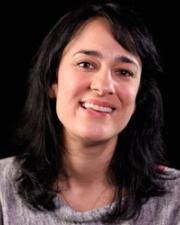 |
Joanna Picciotto, Distinguished Teaching Award, 2012Joanna Picciotto, who joined the English Department in 2005, teaches courses focused on 17th- and early 18th-century British literature. Her first book, Labors of Innocence in Early Modern England, argues that we can see the modern concept of objectivity taking shape in literary representations of efforts to restore paradise. Her scholarship has been enthusiastically reviewed, and her students give her equally high praise. One member of the campus committee that gave her the teaching award described her classroom: “The energy level of Picciotto and intensity of the material was unparalleled. All 40 students engaged, participating and collectively reworking their individual understanding of the complex reading done in preparation for the lecture.” Her students explained that she promotes dialogue in the classroom by weekly assignments: “She asks us to write weekly reading responses and then … tailors that day’s lecture/discussion around our thoughts. It’s very effective—everyone is always actively participating.” Picciotto believes that lively classroom discussions foster attentive readers: “Marks on the page only become literature when encountered by an attentive reader; the more involved a student is in class, the more likely she is to become such a reader. I thus revise my lectures every semester to respond to the issues my students raise, so that even when I’m lecturing I’m not really the only one speaking.” |
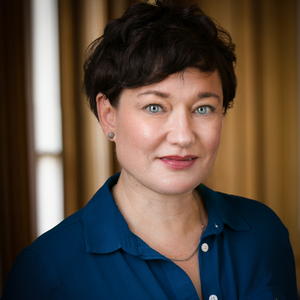
Photo Credit: Yanina Gotsulsky |
Kathleen Donegan, Distinguished Teaching Award, 2015Kathleen Donegan’s teaching and scholarship explore the literature and culture of early America. Her first book, Seasons of Misery: Catastrophe and Colonial Settlement in Early America, investigates the unsettling history of early English colonial settlement in Native America. Since joining the Berkeley English Department faculty in 2007, Donegan has taught a wide range of courses: surveys on early American literature, and more specialized courses on colonial Caribbean studies; early American women writers; captivity, slavery and piracy; the colonial Atlantic world; and racial formation in early America. In all of her courses, she deepens students’ understanding of the mixed and complex cultural history of the U.S. They credit her with opening their eyes to pre-Revolutionary America through interdisciplinary approaches. Her students praise her for her dynamic teaching style, her personal interest in their education, and her ability to bring many different historical perspectives and materials into her courses. That combination won her only the Distinguished Teaching Award in 2015 and also won her the American Cultures Innovation in Teaching Award. Distinguished Teaching Awards 2017 Learn about Kathleen Donegan’s administrative leadership here. |
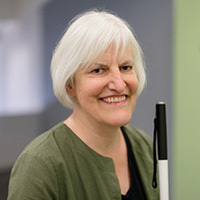 |
Georgina Kleege, Distinguished Teaching Award, 2016Professor Georgina Kleege has taught creative writing, nonfiction prose, and disability studies in the English Department since 2002. In addition to numerous essays, she has written a novel, a ground-breaking memoir, Sight Unseen, and a book on blindness and visual art, More Than Meets the Eye: What Blindness Brings to Art. In her writing and teaching, she stresses that learning about disabilities can deepen self-understanding for all of us, expanding our capacities for sensation and aesthetic enjoyment, revealing dimensions of our social relations, our interactions with the built environment, and our technologies. She facilitates learning by creating a comfortable environment for student participation, striving “to structure classroom activities that will foster active intellectual exchange.” Believing that “passivity is the enemy of learning”, she helps her students develop the habit of testing their ideas against others. Her method seems to work well, for her students praise her particularly for making them “full participants in a communal learning enterprise. They don’t only have the sense that they’ve learned, but also that they’ve produced learning” |
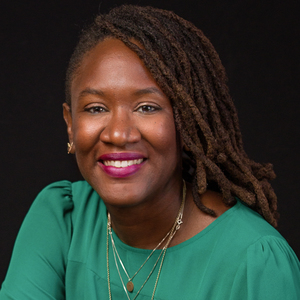
Photo credit: Vaughn Ellis |
Nadia Ellis, Distinguished Teaching Award, 2020Professor Nadia Ellis is the English Department’s most recent winner of the Distinguished Teaching Award, receiving the honor in 2020. It is the second teaching award she has won since joining the department in 2009; she was given the American Cultures Innovation in Teaching Award in 2016. Her scholarship and teaching are devoted to black diasporic, Caribbean, and postcolonial literature and culture. Her first book, Territories of the Soul: Queered Belonging in the Black Diaspora, describes the sense of belonging to a realm outside of ordinary geographic boundaries that comes into being for African diasporic subjects through black expressive culture. In her teaching, she also attends to all that can be gained from looking at the world from outsiders’ perspectives. For example, Ellis asked her students in her American Cultures class to find what narratives of immigration could teach them about their own culture by defamiliarizing it. In a Daily Californian interview, Ellis explained that the idea sprang from her own experience as an immigrant: “What if all the things that at one point seemed eccentric or baffling to me about American identity and culture could become a lens for us as a class to re-think all that has come to seem “natural” and settled? I began thinking in those terms … and then I also realized that, interestingly, the only way to understand how race has developed over in America (especially whiteness!) is to understand the history of immigration” \ |
